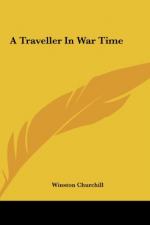The sense of relief I felt was not only the result of bright skies and a high barometer, of the palpable self-confidence of the pedestrians, of the white bread on the table and the knowledge that there was more, but also of the ease of accomplishing things. I called for a telephone number and got it cheerfully and instantly. I sent several telegrams, and did not have to wait twenty minutes before a wicket while a painstaking official multiplied and added and subtracted and paused to talk with a friend; the speed of the express in which I flew down-town seemed emblematic of America itself. I had been transported, in fact, into another world—my world; and in order to realize again that from which I had come I turned to a diary recording a London filled with the sulphur fumes of fog, through which the lamps of the taxis and buses shone as yellow blots reflected on glistening streets; or, for some reason a still greater contrast, a blue, blue November Sunday afternoon in parts, the Esplanade of the Invalides black with people—sad people —and the Invalides itself all etched in blue as seen through the wide vista from the Seine.
A few days later, with some children, I went to the Hippodrome. And it remained for the Hippodrome, of all places, to give me the thrill I had not achieved abroad, the thrill I had not experienced since the first months of the war. Mr. George Cohan accomplished it. The transport with steam up, is ready to leave the wharf, the khaki-clad regiment of erect and vigorous young Americans marches across the great stage, and the audience strains forward and begins to sing, under its breath, the words that proclaim, as nothing else perhaps proclaims, how America feels.
“Send
the word, send the word over there . . .
We’ll
be o-ver, we’re coming o-ver,
And
we won’t come back till it’s o-ver, over
there!”
Is it the prelude of a tragedy? We have always been so successful, we Americans. Are we to fail now? I am an American, and I do not believe we are to fail. But I am soberer, somehow a different American than he who sailed away in August. Shall we learn other things than those that have hitherto been contained in our philosophy?
Of one thing I am convinced. It is the first war of the world that is not a miltary war, although miltary genius is demanded, although it is the bloodiest war in history. But other qualities are required; men and women who are not professional soldiers are fighting in it and will aid in victory. The pomp and circumstance of other wars are lacking in this, the greatest of all. We had the thrills, even in America, three years ago, when Britain and France and Canada went in. We tingled when we read of the mobilizing of the huge armies, of the leave-takings of the soldiers. We bought every extra for news of those first battles on Belgian soil. And I remember my sensations when in the province of Quebec in the autumn of 1914, looking out of the car-window at the troops gathering on the platforms who were to go across the seas to fight for the empire and liberty. They were singing “Tipperary!” “Tipperary!” One seldoms hears it now, and the way has proved long—longer than we reckoned. And we are singing “Over There!”




